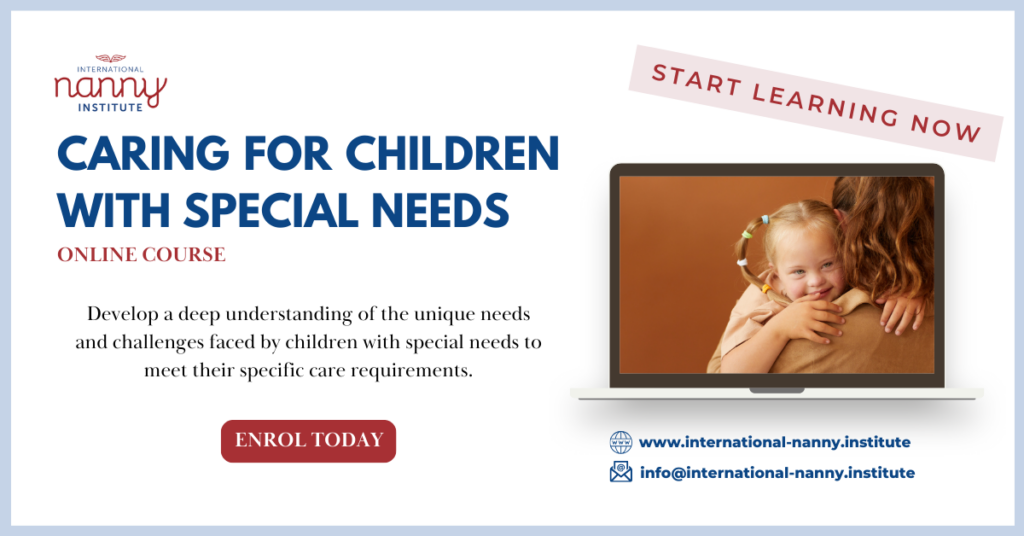As dedicated nannies, we have the privilege of caring for children during their formative years, witnessing their growth and development firsthand. This responsibility becomes even more profound when working with children who have special needs. These remarkable children often face unique emotional challenges that require our deepest empathy and specialised support.

In this blog post, we will explore strategies and techniques to nurture the emotional well-being of children with special needs, empowering them to thrive and reach their full potential. By understanding the importance of emotional support and implementing practical, evidence-based approaches, we can create an environment that fosters resilience, self-acceptance, and a healthy sense of self.
Fostering a Safe and Supportive Environment
The foundation for supporting emotional well-being lies in establishing a safe, nurturing, and predictable environment. Children with special needs often thrive on routine and structure, as it provides a sense of security and stability. As nannies, we can help create this by implementing clear expectations, consistent schedules, and visual cues. Ensuring the physical space is free from overwhelming stimuli and designed to meet their sensory needs can also contribute to an environment that promotes emotional regulation.
Validating Emotional Experiences
Many children with special needs may face difficulties in identifying and expressing their emotions. By actively listening, validating their feelings, and providing them with the tools to communicate their experiences, we can create a safe space for emotional exploration. Incorporating the use of visual aids, social stories, or emotional check-in systems can empower these children to articulate their inner worlds and feel heard and understood.

Collaborating with Professionals
In some cases, additional support from mental health professionals may be beneficial for children with special needs. As nannies, we can collaborate with psychologists, counsellors, or therapists who specialise in working with this population. These experts can provide invaluable assessments, tailored interventions, and ongoing guidance to address specific emotional challenges that the children in our care may face.
Fostering Emotional Regulation Skills
Teaching children with special needs effective emotional regulation strategies is crucial for their long-term emotional well-being. Techniques such as deep breathing exercises, mindfulness activities, and sensory-based interventions can help them develop the skills to recognise, manage, and cope with their emotions. By equipping them with these tools, we empower them to navigate challenging situations with greater resilience and self-awareness.
Encouraging Social Connections
Social skills and emotional well-being are intricately linked. By providing opportunities for children with special needs to engage in positive social interactions, we can support their emotional growth and foster a sense of belonging. Facilitating peer-to-peer activities, group play, and collaborative learning experiences can help develop empathy, communication, and interpersonal skills, all of which contribute to a child’s overall emotional well-being.

Do you want to learn more about nurturing the emotional well-being of children with special needs? International Nanny Institute’s Caring for Children with Special Needs course can help you to create a safe and supportive environment for children who need additional support, validate emotional experiences, fostering emotional regulation skills, encouraging social connections, and collaborating with professionals, we can make a significant impact on the lives of these remarkable children.

Embarking on this journey as a nanny is not only rewarding but also an opportunity for personal and professional growth. By enrolling in the Navigating Adolescence course, you will gain the specialised knowledge, practical strategies, and a supportive community to effectively support the emotional well-being of children with special needs. Together, let us cultivate an environment where every child can thrive, feel valued, and develop the resilience to navigate life’s challenges with confidence.


